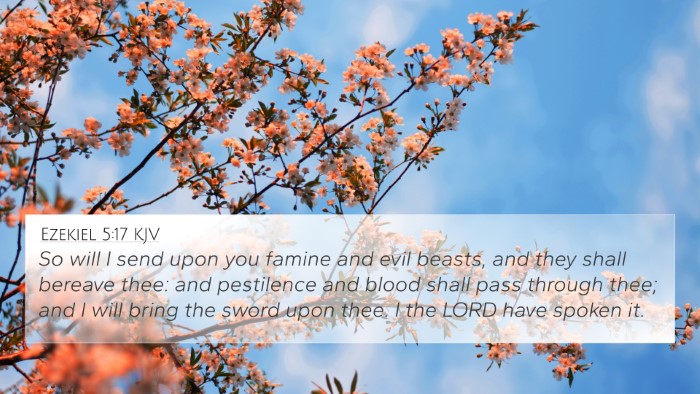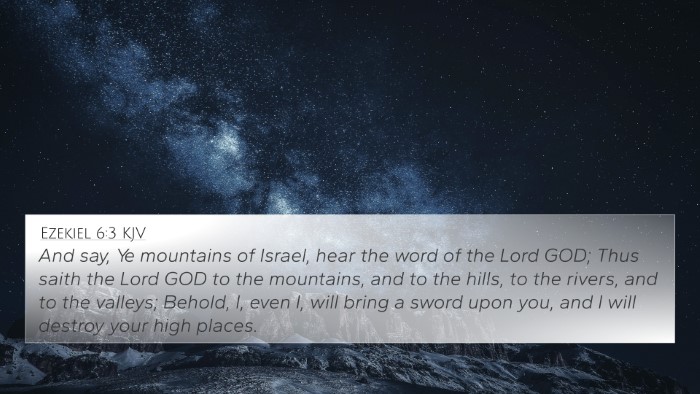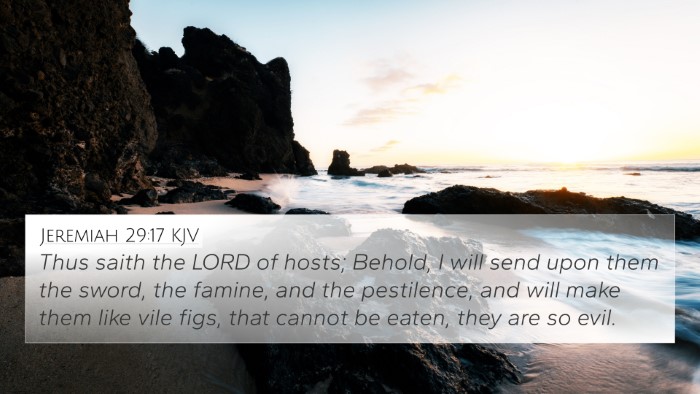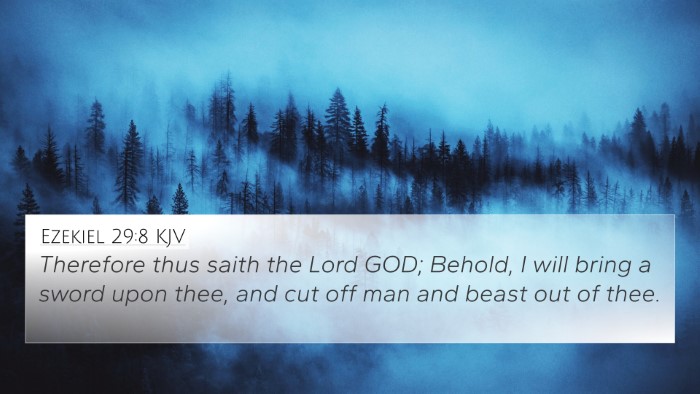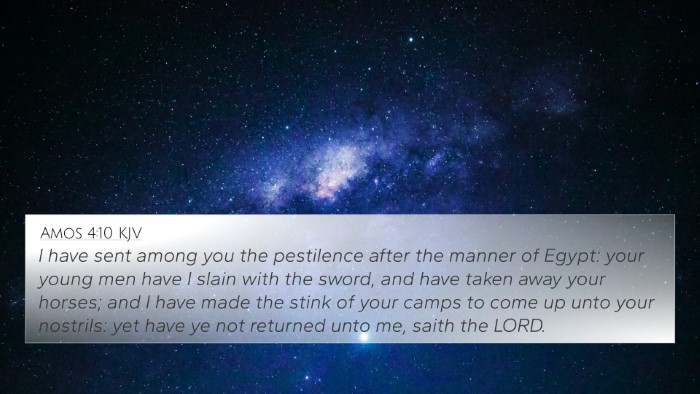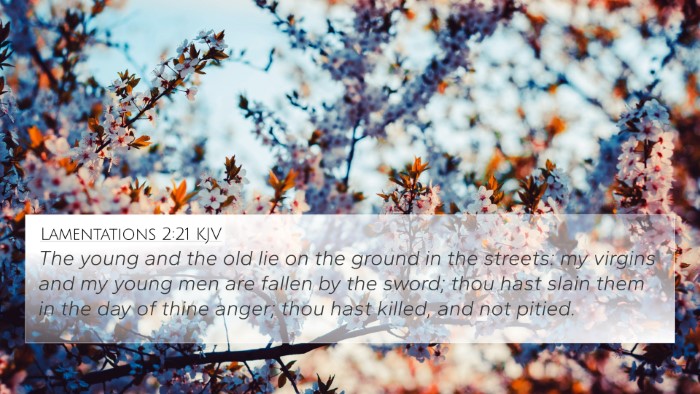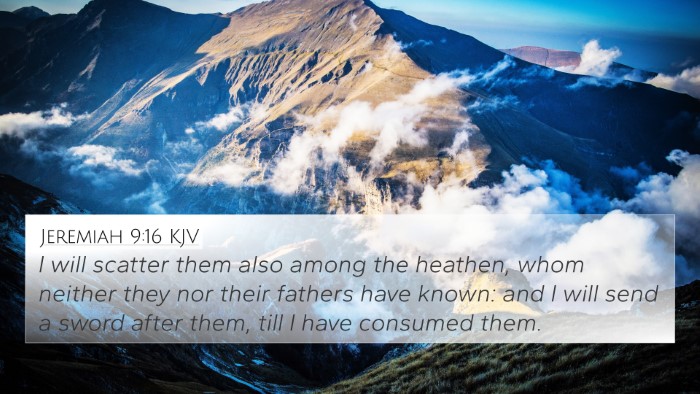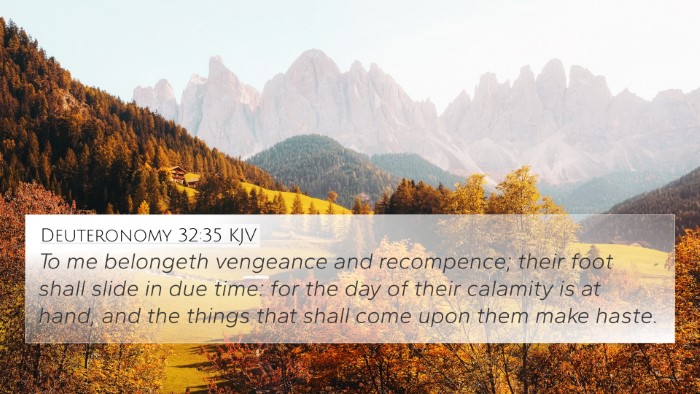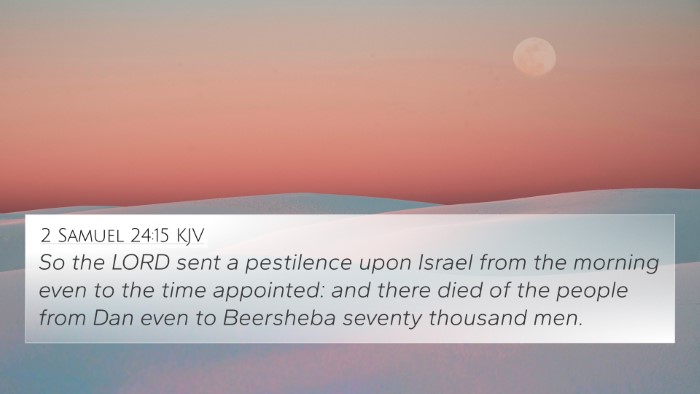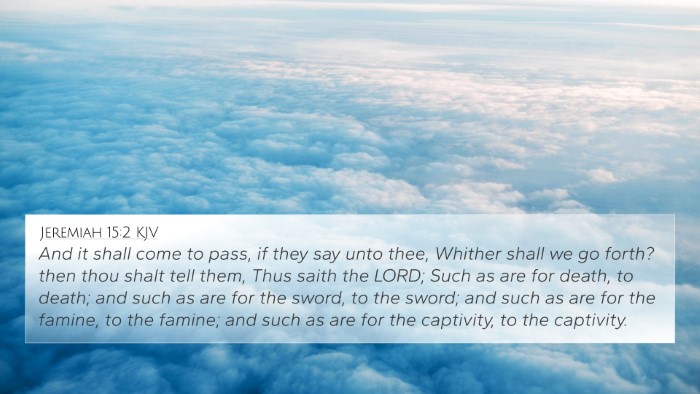Understanding Leviticus 26:25
Leviticus 26:25 states:
"And I will bring a sword upon you, that shall avenge the quarrel of my covenant: and when ye are gathered together within your cities, I will send the pestilence among you; and ye shall be delivered into the hand of the enemy."
This verse is a continuation of God’s admonition to the Israelites regarding the consequences of disobedience to His covenant. It emphasizes the severity of punishment that can arise from turning away from God.
Commentary Insights
In synthesizing insights from Matthew Henry, Albert Barnes, and Adam Clarke, we find a nuanced understanding of this verse's implications.
Matthew Henry's Commentary
Matthew Henry portrays this passage as a solemn warning from God regarding His covenant. He notes that the “sword” symbolizes divine judgment. This judgment serves to "avenge the quarrel of my covenant," which suggests that the Israelites’ infidelity incites God's righteous indignation. The health crisis introduced through pestilence serves as a method of discipline, aiming to bring the people back to God. Henry emphasizes the need for the people to recognize their waywardness and the threat of divine retribution.
Albert Barnes' Commentary
Albert Barnes elaborates on the judicial nature of God's actions as described in this verse. He underscores that pestilence as a scourge should lead the people to repentance. Barnes interprets the “sword” as a military instrument, which symbolizes both the physical threat of invasion and the internal discord that arises from sin. His reflections lead believers to understand that reassurance and protection are offered through obedience to God's covenant, and those who stray risk falling into calamity.
Adam Clarke's Commentary
Adam Clarke aligns closely with the views presented by Henry and Barnes but further gives attention to the communal aspect of the punishment. He observes that when the Israelites gather together within their cities, it indicates a collective failure to uphold the covenant. Clarke stresses God's actions target not only the individual transgressors but the community at large, indicating the communal ramifications of sin. His study offers a perspective on collective accountability in spiritual contexts.
Cross-References with Leviticus 26:25
To enrich our understanding of Leviticus 26:25, we can look at several Bible verses that form thematic and contextual links:
- Deuteronomy 28:21-22: "The LORD will make the plague cling to you until He has consumed you from the land which you are going to possess." This verse outlines the dire consequences of disobedience.
- Ezekiel 14:21: "For thus says the Lord God: How much more it shall be when I send My four severe judgments on Jerusalem—the sword and famine and wild beasts and pestilence—to cut off man and beast from it?" This emphasizes the seriousness of divine retribution.
- Psalms 91:3: "Surely He shall deliver you from the snare of the fowler, and from the perilous pestilence." This provides a counterpoint, illustrating God's protection for the faithful.
- 2 Chronicles 7:13-14: "When I shut up heaven and there is no rain, or command the locusts to devour the land, or send pestilence among My people, if My people who are called by My name will humble themselves..." highlights the response of repentance.
- Jeremiah 24:10: "And I will send the sword, the famine, and the pestilence among them, till they are consumed from the land that I gave to them and their fathers." This reinforces the judgment theme associated with unfaithfulness.
- Matthew 24:7: "For nation will rise against nation, and kingdom against kingdom. And there will be famines, pestilences, and earthquakes in various places." Connects Old Testament themes to New Testament prophecy.
- Revelation 6:8: "I looked, and behold, a pale horse. The name of him who sat on it was Death, and Hell followed with him. And power was given to them over a fourth of the earth, to kill with sword, with hunger, with death, and by the beasts of the earth." This provides a vivid depiction of God's judgment at the end times.
Thematic Connections and Interpretations
Leviticus 26:25 fits within a broader biblical narrative that reveals God’s covenant relationship with His people. The recurring themes of warning, judgment, and the need for repentance are echoed throughout Scripture. The accompanying cross-references piece together an intricate web of spiritual truths concerning the consequences of rejecting God's ways.
Exploring Inter-Biblical Dialogue
The thematic connections laid out in the verses above are illustrative of a patterned discourse between the Old and New Testaments. For instance, the pestilence and sword that God promises in Leviticus anticipates the discussions of divine judgment seen in both Ezekiel and Revelation. Furthermore, one can see how the New Testament offers glimmers of hope for redemption through Jesus Christ. This inter-biblical dialogue serves to deepen the understanding of God's nature as both just and merciful.
Tools for Cross-Referencing Biblical Texts
For anyone interested in exploring the connections between Bible verses, various resources can be utilized:
- Bible Concordance: A vital tool for locating where specific words or phrases appear in Scripture.
- Bible Cross-Reference Guide: Guides that help trace thematic links between verses.
- Cross-Reference Bible Study: Methods employed for comparative analysis of texts to extract deeper meanings.
- Bible Reference Resources: Comprehensive materials that provide broader context and interpretations of passages.
- Bible Chain References: Systems that link verses with related themes or ideas across the Scriptures.
Conclusion
Considering Leviticus 26:25 in the light of its commentaries and cross-references allows for a profound appreciation of the Scriptures. The messages of warning against disobedience, the consequences of sin, and the need for repentance resonate throughout the biblical narrative. Utilizing tools for Bible cross-referencing will assist any believer in making connections between Biblical texts, enhancing their understanding and faith journey.




